MARCHING TO THE BEAT
OF A DIFFERENT DRUMMER
There is no gauging the depth of gratitude we owe to Master Jou, Tsung-Hwa for the great gifts of wisdom and knowledge with which he was so generous during his long career. The knowledge he bestowed upon all who seek to train in the Chinese internal health and martial arts should be properly honored. He was a pivotal influence in promoting Taijiquan and other arts to the West. It is to that end that we dedicate this website in his honor.
-John P. Painter
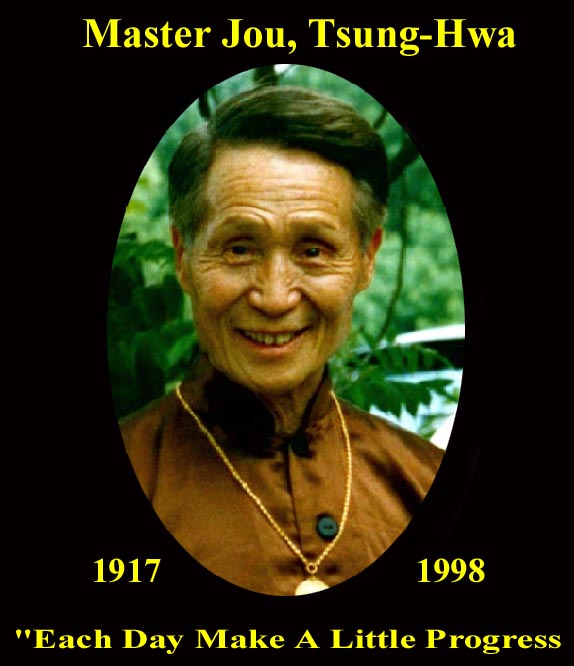
A living legend in the Chinese internal martial arts world passed into the mist August 3, 1998. Master Jou, Tsung-Hwa or Master ‘Joe’ as most people called him was a beloved instructor and promoter of the Chinese internal arts. Master Joe, was cut from a different bolt of cloth than most Tai Chi Chuan (Taijiquan)1 teachers. He was the author of The Tao of Tai Chi Chuan, Tao of I-Ching, and Tao of Meditation all best-selling books still available today.
What garnered this quiet little man with a duck like walk a reputation as both a genius and a Taijiquan maverick was that he was not afraid to think for himself, to innovate and change things for the better. For years he ceaselessly worked on his mind and body. Molding, training and shaping his methods until he transcended the world of form and substance.
He was not just a Taijiquan practitioner. He became the essence of Taijiquan in body mind and spirit. His was a seminal influence that helped to popularize not only Taijiquan but the other Chinese internal arts practiced for both health and self-defense. He accomplished this through his teaching, writing and bringing people of all styles and methods together at his annual Chang San Fung Festival (Zhang San Feng Festival) held in Warwick New York
1 Tai Chi / Tai Chi Chuan / T’ai Chi Ch’uan / Taijiquan are various ways of spelling the name of the Chinese internal martial and health art from the Chinese characters太 極 拳 which translate as Great Extreme Boxing.
Welcome to our celebration of his life and legacy
Here you will come to know the man and his dream as well as the many students and teachers who made Jou, Tsung-Hwa’s Tai Chi Farm the place to be during the beginning years of the emergence of Chinese internal martial arts in the West.
The Beginnings of a Master
Jou, Tsung-Hwa never intended to be a Taijiquan master. He was a school teacher and mathematician of the highest order in his early years in China. He was born in the rural town of Zhuji, in Zhejiang Province China home of the fabled Mount Tiantai (“Heavenly Terrace”). The young Tsung-Hwa grew up to become one of the most highly acclaimed professors of mathematics in China.
Before the age of forty he had over thirty of his math textbooks published in China. In 1964 at the age of forty-seven Jou, Tsung-Hwa whose health was never very good due to restricted food supplies in China found himself suddenly stricken with intestinal and cardiac problems. His doctor gave him only a few months to live with little hope of recovery.
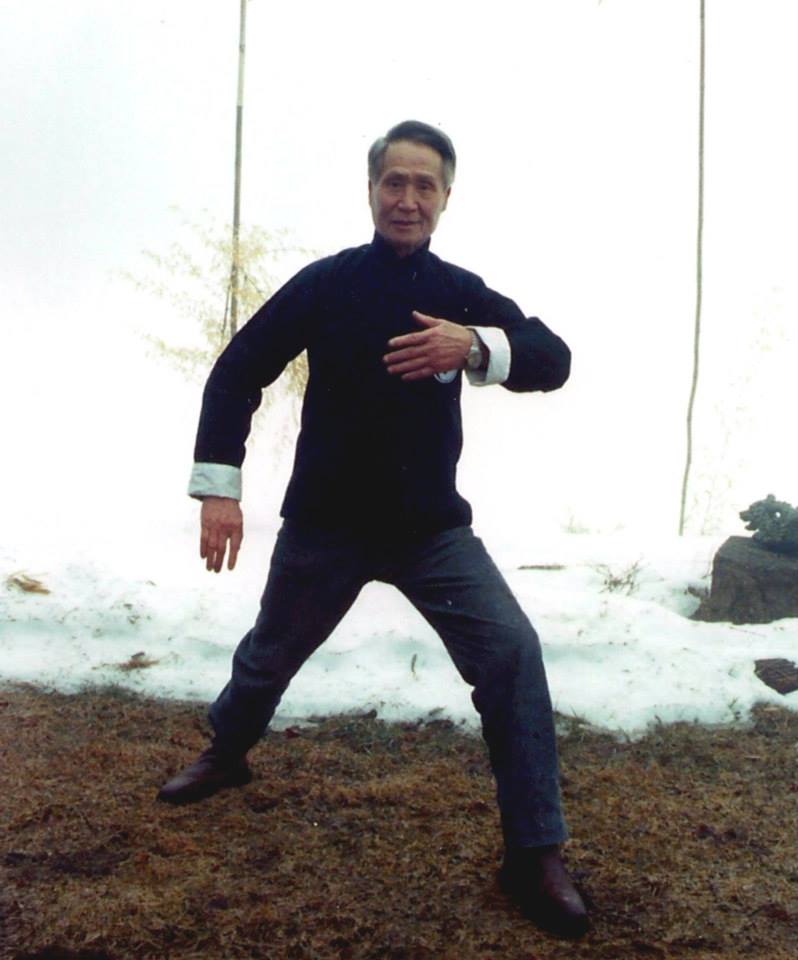
He was suffering terribly and almost at death’s door when a close friend introduced him to a Taijiquan Taoist master as a last ditch effort. The fitness and health of the older master so impressed the frail, sickly Tsung-Hwa that he resolved to master the art of Taijiquan to restore his health. Beginning daily practice of only a few minutes each morning he made slow, but steady progress. He soon found the strength to lengthen the training to an hour a day.
In five years his physician pronounced his heart and stomach conditions to be completely cured ans his overall health to be perfect. Inspired by his success he wanted to devote himself full time to his passion for Taijiquan. Mr. Jou’s dream was to see Taijiquan become a universal form of exercise practiced by peoples of every nation. He understood that to accomplish this monumental task teachers had to come together and scientific truth would have to replace superstition, myth and faulty knowledge.
After moving to the United States in 1971 he was determined to share his newfound discovery with the world. He began teaching a class of Taijiquan at Livingston College at Rutgers University. This program that college administrators thought would be a failure soon had three hundred students registered. When the class was cancelled some time later a new home for his work and research in the art was needed.
Searching For The Roots
Jou, Tsung-Hwa returned to China again and again seeking out the oldest and wisest of those who “hide their light”. Taoist masters of longevity and internal arts who seldom teach publicly. From many of them, he reconstructed much of the lost knowledge that he freely passed on to his students and close friends. A keen observer, Master Jou’s greatest longevity secret was made while viewing a photo of himself and an old Taoist master taken in China. He noticed the light in the old masters eyes and his posture. The old man was as erect as any youngster and had a certain attitude that radiated life and health.
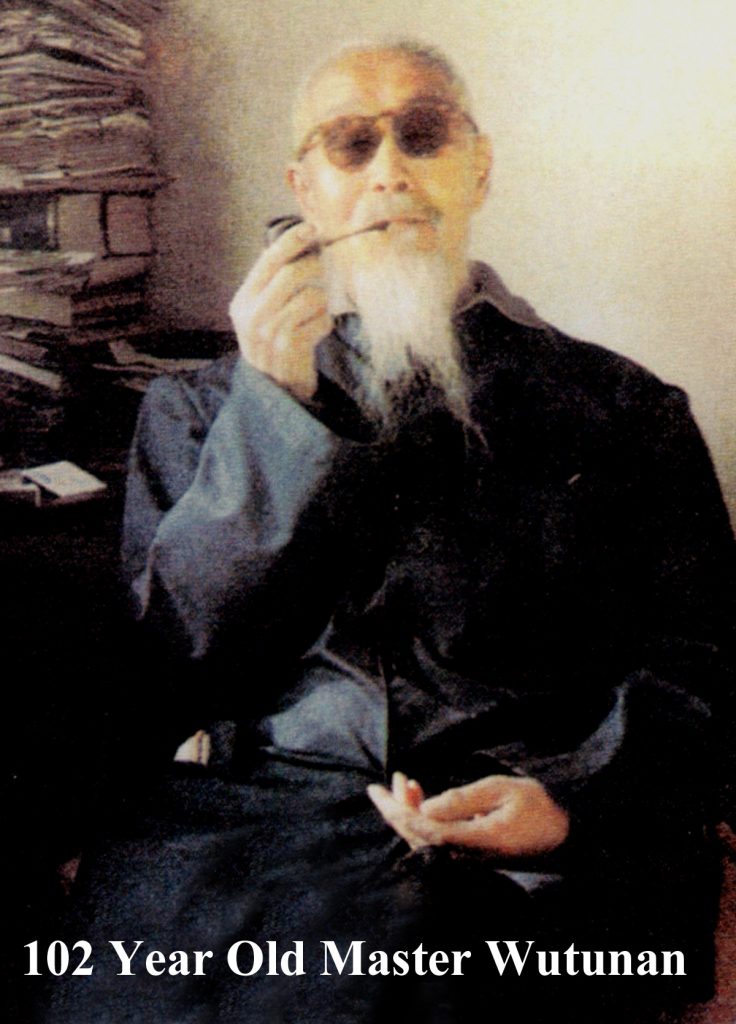
Adopting the Taoists breathing practice and posture changed his own practice. One evening at the Tai Chi Farm, he told Dr. Painter’s Baguazhang class, ”When I saw how straight he was and how alive he looked and how I looked so old next to him even though he was much older than I, it changed me. I started to understand that practice is every moment awake and sleeping. It is posture, attitude and energy that we create in ourselves each moment we are alive. This is the secret of my longevity and health. Anyone who is a little clever can do it. You just have to tell yourself, ‘I will do it!’ then try to improve yourself each day!
Dr. Jay Dunbar one of Master Jou’s long time students wrote, “Master Jou approached the study and teaching of Taijiquan holistically, that is, he taught all its aspects: as a martial art, as a spiritual practice, as a philosophy, etc. He disapproved of those who taught the art in a fragmented fashion. Taught properly, he believed that all benefits became an effective byproduct of diligent Taijiquan practice. Taught in fragmented fashion the benefits are equally fragmented. He understood that not everyone was the same. As such he taught people to begin their study by tailoring their practice to their body’s limits. He encouraged everyone, however, to extend those limits to their utmost.”
Dr. Painter said of Master Jou “His attitude and approach to the internal arts made him the epitome of a true Chinese martial arts master. Jou, Tsung-Hwa was a shining light of truth into the darkest corners, illuminating the twilight of a new age of enlightenment for Taijiquan. He never missed the opportunity to teach or practice his method. No one who asked a question was refused an answer. He made time for beginners in the same way as he did for instructors.”
Here is a case in point. Once some students while following Master Jou back to the Tai Chi Farm from New York City lost his car for a moment. They doubled back and found that he had been stopped on the New Jersey freeway for speeding. The highway patrol officer, a hulk of a man who made Sylvester Stallone look like a pencil neck geek, was standing on the side of the road getting a demonstration of roll back, press and push. The hulking officer, to the surprise and amazement of the students in the other vehicle was attempting to do the moves with Master Jou. The two were so engrossed by their practice, they took no notice of the hundreds of cars whizzing by on the turnpike. As a footnote to the story. Mr. Jou did not get a ticket!
When he turned 81 in July of 1998 it was evident that here was a living example to follow. He clearly proved that longevity and radiant health is possible if the student practices a Tai Chi lifestyle. Jou, Tsung-Hwa at 81 was in perfect health and looked more like a man of 60 than an octogenarian. He was easily capable of the most amazing feats of flexibility, playing push-hands, or sparring and often ran circles around students in their twenties. His skin was clear and his eyes sparkled with an energy that said, I am truly alive and loving it. While he could be soft as cotton, his body seemed to embodied the Chinese classics maxim that refer to being like “a bar of iron wrapped in cotton.” His muscles were as hard and strong as that of any thirty-year-old.
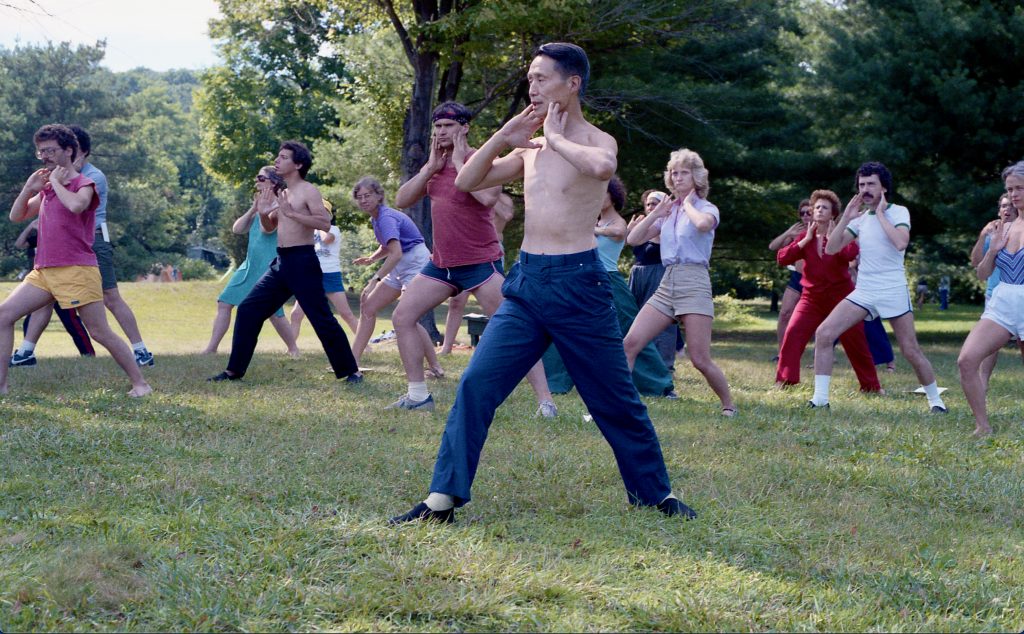
Dr. John Painter recounts, “His condition at 81 was made quite evident to me when we ducked away from the crowd at the farm during the festival for our annual chat about the I Ching (Yijing) and Baguazhang. We drove to his favorite sea food restaurant to eat lobster. Eating out with Master Jou was always an experience as he was prone to start teaching you or anyone else for that matter in the middle of a restaurant or filling station.
In restaurants, especially at breakfast, he took particular delight in demonstrating Fajin or pulsing energy on the dinner table. The results of which often caused the crockery and silverware to rebound straight upwards several inches from the tabletop. One day he was in rare form and took great delight in demonstrating such moves on the table while waiting to be served. As the waitress walked by she asked how he was feeling today. For an answer, he rolled up his pants leg and displayed a smooth skinned calf with no varicose veins to an astonished waitress.
She and I were both impressed and then he flexed his calf muscle. For a man of 50 his leg would have been impressive but on an 81-year-old they were astounding. Iron hard calves bulging out of his leg with a density of muscle that would have made even Arnold jealous. ”Taijiquan!” he said “See how strong it has made me at my age.” She giggled and hurried off to the kitchen to get our food. I looked at him, rolled my eyes and shook my head. He laughed.
The Fountain of Youth of Tai Chi
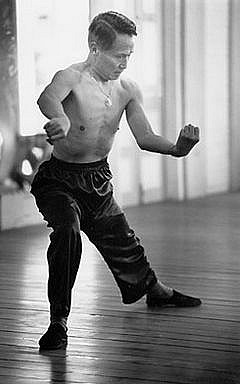
Two of his senior students, Dr. Jay Dunbar and Loretta Wollering agree that Master Jou was on the verge of a great breakthrough in his Taijiquan practice when he was suddenly without warning struck down in the prime of his 81st year.
Dr. Painter who knew him for almost 20 years, said, “I was continually amazed at how he lived his art each and every day. Like the fabled Lao-Tzu author of the Tao Te Ching (Daodejing), Jou, Tsung-Hwa seemed to be aging in reverse. Each year he looked younger and felt softer but also stronger.
This was no form replicating copycat, content to hop from one form to another. Jou, Tsung-Hwa was a true original, a one of a kind master of Taijiquan. He possessed the master key to internal arts and was happy to share it with everyone.”
